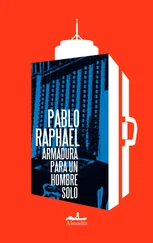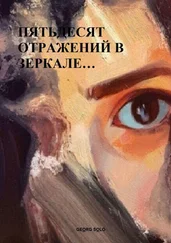‘Yes?’
‘We stole some stuff. Paintings, I think.’
Khatuna was still smoking her cigarette.
‘Hit him again.’
Vakhtang hit him. The impact of wood on skull was deep and sublime. Khatuna said,
‘My mother came here to sell her antiques. She was miserable and ruined, and all she could do was turn to you. Every few days she came to hand over part of our family’s history. Did you know she is a princess?’
There was no one on the road outside, no traffic, no evening sounds, just Khatuna standing over the man in her long black coat.
‘You threatened to kill my brother. I told you that day I would come for you, and I have come.’
The father could not breathe properly with the muzzle of a gun in the back of his neck, and was dribbling saliva on the floor. The young man was dazed from the blows. He said,
‘I’ll repay you. In full. I’ll get everything back.’
‘I’m not here to bargain,’ said Khatuna.
‘There must be something I can do,’ whimpered the man.
‘No,’ replied Khatuna.
She nodded to Vakhtang. The gun had a silencer, and the only sound was a brief sucking of air. The man slumped as if death had come from within. The father screamed hoarsely.
‘As for you,’ Khatuna said coldly, ‘I have nothing to say because you are old and ugly. You can have one last moment to think of everything you did to my family.’
Crows were cawing with the end of the day, and the old man choked. Everyone watched Khatuna, who gave the signal, and he fell forward too.
She wandered round the shop. Her heartbeat was out of control. She was shaking and unslaked. She wished she had pulled the trigger. Her voice wavered.
‘There’s nothing here to break.’
‘Break the window,’ suggested Vakhtang simply.
She took his gun, went out of the shop, the bell tinkling again, and swung at the plate glass with all her strength.
The glitter-crash went on an age. She watched it all: the subdivision of crystal, and the shards’ rebound. It was a drastic cascade, and it did not touch her in the least.
She had waited years for this moment. She had expected, when it came, she would feel everything shift back into its rightful place. She had expected to feel reborn: she had expected that the spider-clutch of memory would be released, and the treasure of her tenderness exhumed again. But she could detect none of these things. Her chemistry had not altered, and the sky looked exactly the same.
The noise had brought people into the street, and she was aware of them grouped behind her, watching.
‘Burn it,’ she ordered, through the hole.
She turned round to get back in the car, while the men emptied petrol canisters over the bodies, over the walls and shelves, over the telephone — and even as they drove away she watched the cloud of oil smoke until it was hidden by the buildings, and she could see it no more.
8
HIS CHAIR WAS AN EXPENSIVE OBJET D’ART that he’d picked out from a store in Soho. Early Meiji, with gold dragons and cranes flying over Mount Fuji against a background of black lacquer, painted layer upon painstaking layer. Signed Tokyo: Shibayama .
A man who made his money from trends and cycles, predictions and futures, needed to seat himself on the firmness of the past — lest he become light headed and float away.
In the middle of his office stood an imposing pair of antique globes from Germany. They were his talking piece, when people came. Engraved in Berlin, he told them, and manufactured in Nuremberg, the centre of eighteenth-century German globe making. He took his time, pointing out, on the celestial globe, the late addition of Uranus, just then discovered by William Herschel and, on its terrestrial twin, the brand-new Pacific coastlines mapped out by James Cook.
He was on 53rd Street, on the forty-first floor, looking down through Midtown to the distant Twin Towers. At this moment he was pacing in the office, poring over a sheet of paper. He had printed out an email in order to consider it better.
For the last month, Plastic Munari had been producing a band of mystic musicians from Morocco. It was a challenge, trying to focus the wailing rhaita into a regular lounge beat and still preserve the purity. He did it small: there was a bass and a woman on tabla holding it together, but he kept the instruments up front. There were moments when the beat disappeared entirely and you were thrown into that hectic infinity, speaking for itself.
Plastic had rented a big apartment on the Upper West Side for the musicians to stay in: they didn’t want to be split up. They were a sight in the streets, fifteen Moroccan tribesmen in robes marching to the studio, and even Plastic took a few photos for himself. Before they flew out from JFK they went to Bloomingdale’s and bought up the entire stock of $300 cast-iron Le Creuset casseroles.
The record was finished now, and Plastic could think about other things. The email came at a good time.
There was a mirror on the wall of his office, set up so he could see the back of his guests’ heads as they faced him at his desk. He stood close to it now.
Plastic had that enviable aura of a man whose inner obsessions have captured the imagination of millions, and so brought him, without obvious strain or compromise, enormous earthly rewards. He had hung on to all his hair and, as he approached the end of his forties, he slept with the kind of young women who would have been unattainable when he was their age.
His suit was cashmere and his tan real. He worked out several times a week, and he’d never looked better in his life.
He stood up when the two men were shown in. The younger one was all smiles.
‘I am Bozhidar Markov. This is my superior, Mr Gospodinov. He is Deputy Minister for Culture of the Republic of Bulgaria.’
Plastic’s secretary hung the men’s overcoats in the corner and they sat down, taking in the framed awards and the Manhattan view. They wore ties under their leather jackets. Plastic sensed they didn’t have the least idea of how the music business worked. Sometimes a good thing, sometimes not.
Plastic turned off his cell phones and studied the two men. Bozhidar Markov seemed earnest and hopeful. Gospodinov was older, with sunken eyes. Plastic said to him good-naturedly,
‘You look rather tired, if you don’t mind me saying.’
Gospodinov did not return Plastic’s gaze. He looked away and surveyed the office. He let his eyes run over the furniture and the paintings while he reached absent-mindedly inside his jacket and pulled out three packets of cigarettes. He turned back and said,
‘So you believe the world is round?’
‘I’m sorry?’
Gospodinov smirked. He motioned with his eyes towards the globes.
‘It’s a joke,’ he said obscurely, piling his cigarette packets up on the edge of Plastic’s desk. The brand name was Smith & Wesson .
Plastic passed it off with a nod. He said,
‘You can’t smoke in here.’
Gospodinov smiled sourly, but did not remove the packets.
‘I think you understand from our email,’ began Bozhidar, ‘why we wanted to meet you.’
‘More or less,’ said Plastic. ‘But I’d like to hear it directly from you.’
Bozhidar invited his boss to speak, but Gospodinov screwed up his face. Bozhidar said,
‘For the underline of our discussion, Mr Munari, it is necessary for you to understand the economic scene of Bulgaria.’
Bozhidar launched into an excessively detailed presentation of Bulgaria’s economic breakdown after the end of communism. As he listened, Plastic fingered the custom-made penknife he had recently bought from a boutique in Stockholm.
Читать дальше
Конец ознакомительного отрывка
Купить книгу












